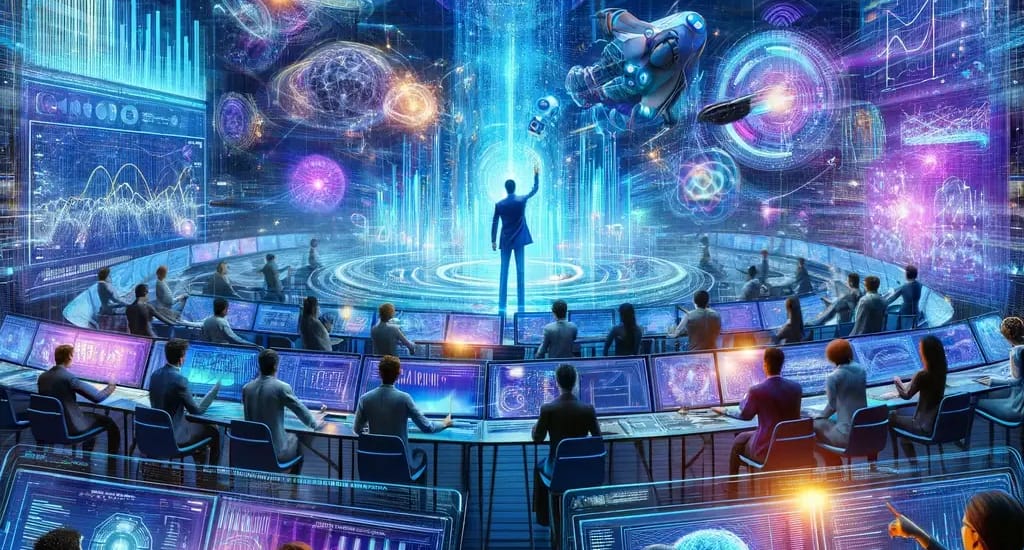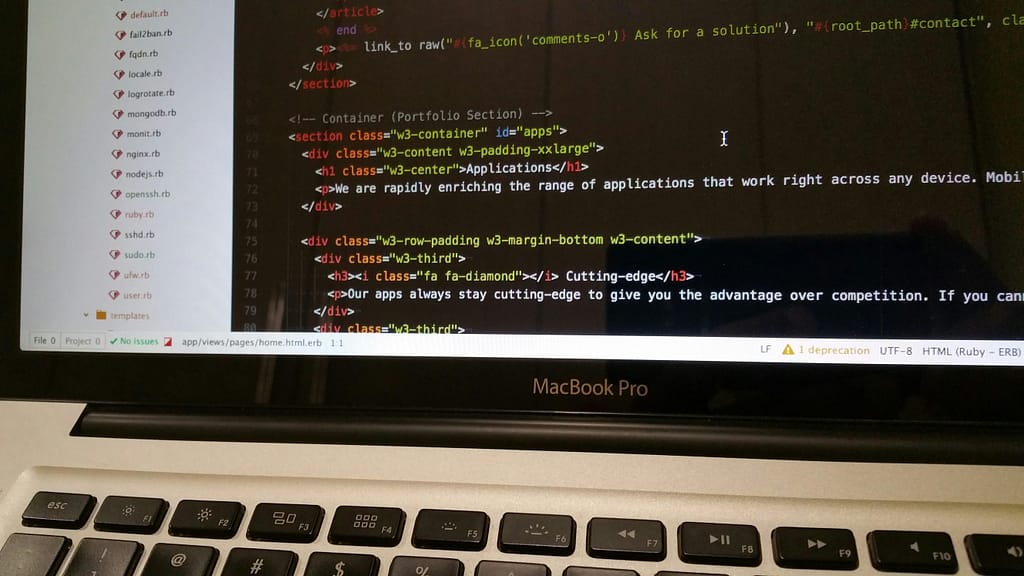Charting the Future: Breakthrough Innovations in AI and Their Transformative Impact
- March 18, 2024
- Posted by: Cheryl Li
- Category: Future of AI & Automation

The realm of Artificial Intelligence (AI) is experiencing an unprecedented wave of innovation, redefining what’s possible across industries and society. From healthcare and education to finance and sustainability, AI’s breakthroughs are setting the stage for a future where technology and human ingenuity converge to solve complex challenges. This blog post explores the latest innovations in AI, their potential impacts on various sectors, and how they are shaping the trajectory of technological advancement and societal progress.
The Vanguard of AI Innovations
Quantum AI
Quantum AI represents the fusion of quantum computing and artificial intelligence. This burgeoning field promises to exponentially increase AI’s problem-solving capabilities by harnessing the principles of quantum mechanics. Quantum AI could revolutionize complex problem-solving, from drug discovery to climate modeling, by performing computations that are infeasible for classical computers.
Generative AI
Generative AI has captured the public’s imagination, creating everything from realistic images and text to music and synthetic data. Technologies like Generative Adversarial Networks (GANs) and models like GPT-3 are at the forefront, offering creative solutions, enhancing content creation, and even accelerating scientific research by generating novel hypotheses and data.
AI in Biotechnology
AI’s application in biotechnology is paving the way for groundbreaking developments in personalized medicine, genomics, and drug discovery. Machine learning algorithms can analyze vast datasets of genetic information, identifying patterns and mutations linked to specific conditions, leading to more targeted and effective treatments.
Autonomous Systems

The advancement of autonomous systems, from self-driving cars to drones and robotic assistants, is reshaping transportation, logistics, and even daily living. These systems rely on sophisticated AI models to navigate complex environments, make real-time decisions, and interact safely with humans and other machines.
AI for Sustainability
AI is emerging as a crucial tool in the fight against climate change and environmental degradation. From optimizing energy consumption in smart grids to monitoring deforestation and predicting natural disasters, AI’s applications in sustainability are vast and varied, offering hope for more effective environmental stewardship.
The Multidimensional Impact of AI Innovations
Transforming Healthcare
AI’s innovations are set to transform healthcare by making it more personalized, efficient, and accessible. AI-driven diagnostics, predictive analytics for patient care, and robotic-assisted surgeries are just the tip of the iceberg. The ability to analyze medical data in real-time can lead to earlier detection of diseases, tailored treatment plans, and ultimately, better patient outcomes.
Revolutionizing Education

In education, AI is personalizing learning experiences, identifying gaps in knowledge, and providing targeted resources to students. Intelligent tutoring systems, language learning apps, and virtual classrooms are making education more accessible and tailored to individual learning styles, potentially closing the educational divide.
Redefining the Workplace
The workplace is undergoing a significant transformation, with AI automating routine tasks, enhancing decision-making, and fostering innovation. AI-driven analytics can uncover insights to inform strategy, while AI assistants and collaborative robots (cobots) can increase productivity and free up humans for creative and strategic endeavors.
Driving Financial Innovation
In the financial sector, AI is driving innovation through algorithmic trading, personalized financial advice, and fraud detection systems. AI’s predictive capabilities can analyze market trends and consumer behavior, offering more customized financial products and enhancing the security of financial transactions.
Advancing Smart Cities and Infrastructure
AI innovations are central to the development of smart cities, where technology is used to optimize urban services and infrastructure. From traffic management systems that reduce congestion to smart energy grids that optimize electricity use, AI is making cities more livable, efficient, and sustainable.
Navigating the Ethical and Societal Implications
As AI continues to advance, it’s imperative to navigate its ethical and societal implications thoughtfully. Issues such as privacy, security, bias, and the future of employment are at the forefront of discussions surrounding AI’s integration into society. Addressing these challenges requires a collaborative approach, involving policymakers, technologists, and society, to ensure that AI innovations benefit all of humanity.
Ensuring Ethical Development and Use
Ethical creation and application of AI are of utmost importance. This involves creating AI systems that are transparent, explainable, and free from biases. Ethical guidelines and frameworks can help steer AI development in a direction that respects human rights and values.
Preparing for the Future of Work
The impact of AI on the job market is a double-edged sword, offering opportunities for new roles and efficiencies but also posing challenges for displaced workers. Preparing for this shift involves investing in education and training programs to equip the workforce with the skills needed for an AI-driven economy.
Fostering Inclusive Innovation
Ensuring that AI innovations are inclusive and equitable is crucial. This means designing AI systems that serve diverse populations and address global challenges, from healthcare access to climate change, ensuring that the benefits of AI are widely distributed.
The Road Ahead: AI’s Transformative Journey
The journey of AI innovation is far from over; it’s continually evolving, with each breakthrough opening new possibilities and challenges. As we navigate this transformative path, the focus should be on harnessing AI’s potential responsibly and ethically, ensuring that technological advancements go hand in hand with societal progress and sustainability.
Conclusion
The innovations in AI are not just reshaping industries; they’re redefining the boundaries of what’s possible, offering solutions to some of the most pressing challenges of our time. From quantum AI to autonomous systems and AI for sustainability, the scope of AI’s impact is vast and profound. As we chart the future of AI, balancing its transformative potential with ethical considerations and societal impacts will be key to unlocking a future where technology and humanity advance together, creating a world that is more connected, efficient, and sustainable.

